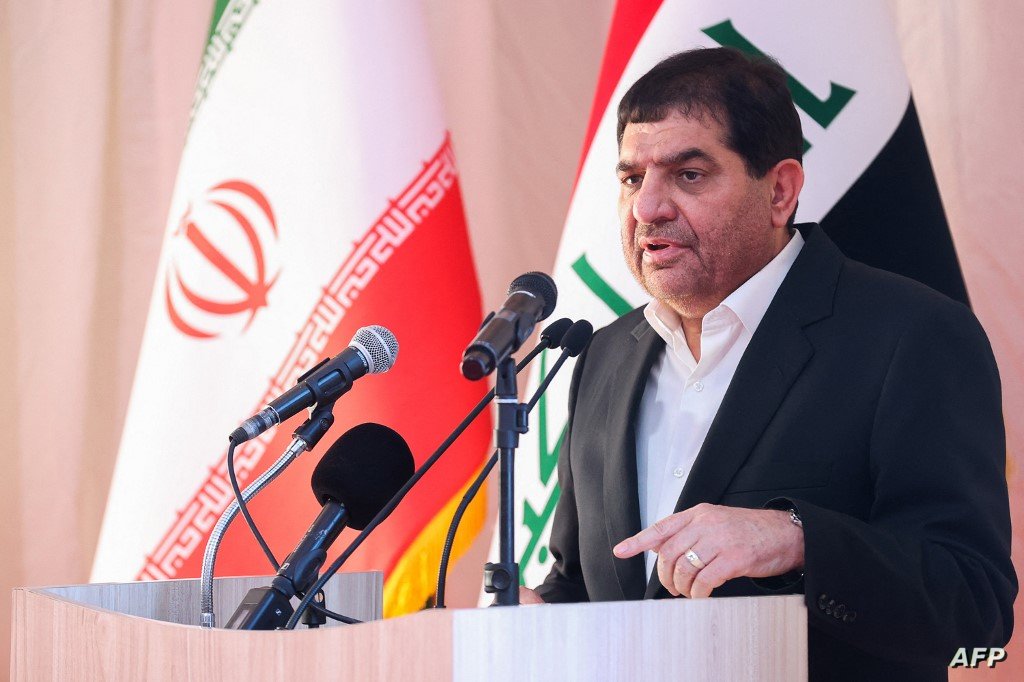Following the passing of Ebrahim Raisi, his deputy, Mohammad Mokhber, found himself thrust into the limelight and under global scrutiny. Per Article 131 of the Iranian Constitution, Mokhber assumes the role of acting president for a period not surpassing fifty days, pending the election of a new president. Mohammad Mokhber, with a history of clandestine involvement in regime politics, resource exploitation, and allegiance to Ali Khamenei, the supreme leader, steps into this interim position.
Leaked documents obtained by Syria TV reveal Mokhber’s pivotal role as an informant within Raisi’s administration. Most notably, decisions concerning Iran’s involvement in Syria bore his direct oversight and signature, illuminating his influence within the regime.
Syria Laboratory
The role of an informant within Raisi’s government is part of a broader strategy aimed at establishing an “engineered economy,” allowing economic entities affiliated with Khamenei’s office to seize state assets and finance the regime’s ambitious foreign projects. These projects include supporting regional proxies and advancing the proliferation of weapons of mass destruction. Mokhber’s close ties with the IRGC and the Quds Force, the regime’s extraterritorial military arm, have facilitated the regime’s backing of militant groups in the region and its interference in the affairs of other nations during Raisi’s administration.
In recent years, the splinter group Intifada until the Overthrow, closely aligned with the PMOI, has released several documents implicating Mohammad Mokhber in efforts to circumvent international sanctions and secure financial resources for the Iranian regime. One such document is a confidential letter dated January 1, 2023, from an informant, who serves as vice president and heads the sanctions evasion headquarters, addressed to the heads of the thirteen branches of government, revealing these clandestine efforts.
Among these documents is a letter authored by Mohammad Mokhber regarding Tehran’s relations with Damascus. In this correspondence to Khamenei, an informant acknowledges that Syria’s debt to the mullahs’ regime in civilian and non-security sectors amounted to approximately $11.6 billion by 2020. Further documents indicate that the Assad regime owes Tehran in excess of $50 billion.
Signing agreements
The most recent encounter between Mohammad Mokhber and Hussein Arnous, the Prime Minister of the regime’s government, occurred in April 2024. During this meeting, various agreements and memoranda of understanding were inked, spanning multiple sectors including banking, trade promotion, industry, culture, taxation, customs, free trade, energy, oil derivatives, transportation, and tourism.
Most Prominent Agreements Signed Between Syria and Iran Under Raisi
On April 18, 2024, Interim Iranian President Mohammad Mokhberengaged in a telephone conversation with Hossein Arnous, focusing on fortifying bilateral cooperation across diverse domains. This underscores Mokhber’s personal commitment to advancing Iran’s persistent endeavors to solidify its economic presence in Syria.
Information obtained by Syria TV suggests that the sudden demise of Raisi, amidst the continued leadership of an informant handling numerous files and previously serving as director of a presidential office with extensive bureaucratic expertise, will not impede Iranian economic and commercial activities in Syria.
Building upon the recommendations of his late predecessor, the informant will pursue a similar approach to bolster Iran’s economic footprint in Syria. This entails supporting the operations of private firms acting as fronts or cover entities for the Revolutionary Guards, the Quds Force, the Iranian army, and others. The goal is to reinforce Iran’s enduring presence in Syria and surmount any obstacles encountered along the way.
This article was translated and edited by The Syrian Observer. The Syrian Observer has not verified the content of this story. Responsibility for the information and views set out in this article lies entirely with the author.


